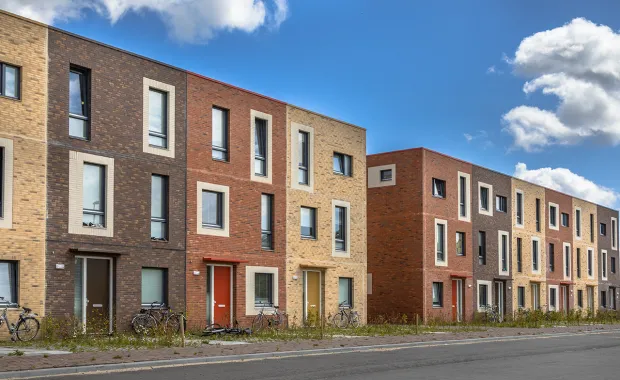A cursory search using any well-known engine will show that back in 2014, it was being reported that some people were facing a horrible choice for them and their families: with a limited budget, should they focus on paying for heating, food or the rent?
If things were bad in 2014, fast forward to 2022 and things are looking a whole lot worse. Covid and its effects have wrought havoc during the pandemic, with many people losing their jobs and having been confined in their homes for large periods of time. The invasion of Ukraine has affected us all in ways we would not have considered even six months ago and is exemplified by the price of fuel; heating fuel that was 55p per litre went to 120p almost overnight, or so it seemed. Staple food prices are also increasing, and if you add in the National Insurance rises that came into effect on April 6th, you can see that the squeeze on incomes as a result of inflation will be felt by the many, not the few.
In the social housing sector, the pain felt by tenants, housing associations (HA) and local authorities (LA) is likely to be particularly acute. Rent pays for the provision of accommodation and the wages of employees at Housing Associations and Local Authorities, but an already huge rent arrears problem is now only going to go in one direction - and it is not the right direction.
Rent arrears (rent that is not paid on time) are 'priority debts', which means the consequences of not dealing with them can be serious. There is a risk of eviction for the tenant, but the ‘pay for heat, food or rent’ conundrum is exactly that, and it is impossible to prioritise. For the landlord (HA or LA), the consequence can be an arrears accrual - measured in hundreds of millions of pounds. This in turn means fewer houses being built, and less money for investment in issues like cladding removal, fixing the root cause of black mould, installing new doors, windows and kitchens. Of course, it also makes it impossible to put money aside to provision for bad debt.
So, if we know things are bad, what can be done?
Unfortunately there is no magic spell that can make money appear out of nowhere, for any of the affected parties. The newly introduced NI increase, designed to provide much needed financial support to the tune of £11 billion for Health and Social Care in the UK, is proof of that; in effect we are all paying that price. The long and short is that there are no easy answers.
However, it isn’t all doom and gloom; there are some answers to these problems that cumulatively can make a difference.
There are proven solutions that can help Housing Associations and landlords address the problem of arrears: ‘predict and prevent’ being a far better state of affairs than ‘find and fix’. Similarly, there are more flexible and sympathetic methods available for requesting payments, such as a situation where the regularity of direct debit payment might not suit a tenant working on a zero hours contract, where income is irregular. Some of these avenues are new, for example Open Banking has become a way of paying your tax bill. In the last year over £3BN was paid in this way; a technology that did not exist just 5 years ago is becoming mainstream. Technology will never address the fundamental revenue problems affecting Local Authorities, Housing Associations and tenants, but it can have a material positive effect.
If you’d like a chat around the difficulties surrounding tenants, Housing Associations or local authorities, or a more general chat around the rising cost of living and some of the solutions to it, please get in touch.





